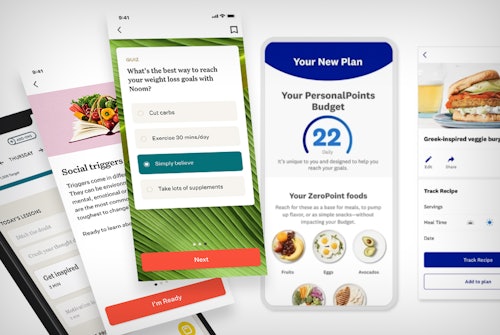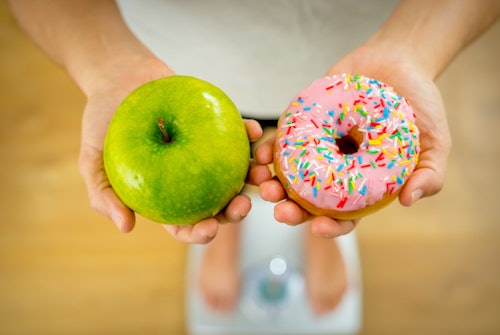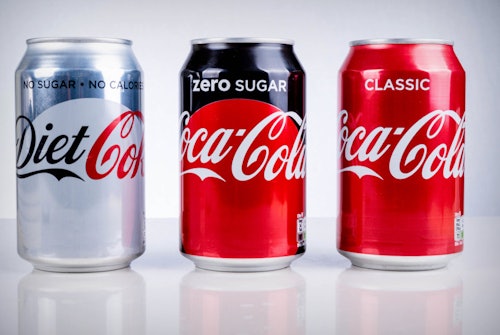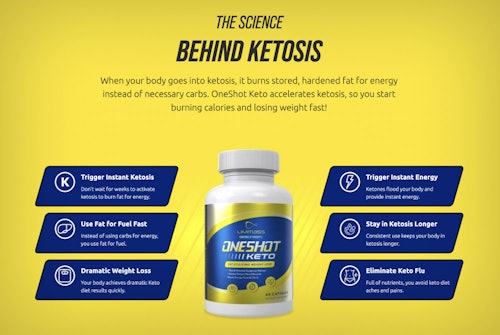Weight Loss In Depth
- What is Healthy Weight Loss?
- Dietary Guidelines for Americans
- Popular Diets and Weight Loss Programs
- Common Weight Loss Supplements
- How to Safely Lose Weight
People choose to lose weight for all kinds of reasons. Some do so to decrease their risk of more serious health conditions in the future, while others may be looking forward to a special event and want to shed a couple of pounds to feel their best. Whatever the reason, doing so safely and avoiding certain diets which may be harmful for you, can increase your chances of keeping it off long-term.
What is Healthy Weight Loss?
Healthy weight loss relies on healthy eating and physical activity, but it can sometimes be a daunting task to understand what that means for each person. Though the exact diet you choose may be unique to your needs, there are some guiding principles when ti comes to losing well safely and nutritionally.
According to the Centers for Disease Control and Prevention (CDC), losing weight gradually and steadily (around 1-2 pounds per week) is considered a healthy way to lose weight. Further, those who do so slowly have a much higher chance of keeping it off long-term.
But weight loss isn’t just a one-and-done process. To maintain your fitness goals, learning how to incorporate a well-balanced diet and working toward regular physical activity is essential to keeping you healthy long after the diet ends.
Dietary Guidelines for Americans
Based on scientific evidence on health-promoting diets, the Dietary Guidelines for Americans (2020-2025) was developed by the U.S. Department of Agriculture and U.S. Department of Health and Human Services to give citizens parameters on healthy eating habits.
According to the guidelines, a healthy eating plan:
- Emphasizes fruits, whole grains, vegetables, and fat-free or low-fat milk and milk products
- Incorporates a variety of proteins such as lean meats, seafood, poultry, soy products, nuts, seeds, eggs and legumes (beans and peas)
- Is low in added sugars, sodium, cholesterol, saturated fats, and trans fats
- Stays within your daily calorie needs
Along with these recommendations, when it comes to knowing exactly what and how much to eat, the dietary guidelines break down food groups that are focused on daily food totals measured in cups, ounces, or tablespoons.
Depending on a person’s health, sex, age, and physical activity, daily calorie limits will vary, but most individuals are encouraged to follow the below chart for daily food goals.
| Food Group | Daily Goals | Recommendations |
| Vegetables | 2.5 to 3 cups | Opt for dark, leafy greens such as kale or spinach; vibrant yellows such as squash; or bright reds like peppers or tomatoes. |
| Fruits | 1.5 to 2 cups | |
| Whole grains | About 1/2 a cup | Look for products that are labeled “whole” grain. |
| Poultry, fish, or meat | 5-6 ounces | Of the allotted 42 ounces of poultry, fish, and meats each week, try to make at least 12 ounces seafood. |
| Dairy | 3 cups | |
| Healthy oils | 1-2 tablespoons | Choose oils such as olive, avocado, peanut, or canola. |
Whether you want to a significant amount of weight or just a few pounds, these guidelines can be helpful in ensuring that you’re doing so while still meeting your body’s vital mineral and vitamin needs.
Popular Diets and Weight Loss Programs
In the world of dieting, there are hundreds of weight loss programs to choose from. Some offer science-backed research to support their weight loss methods, but many others lack sufficient evidence to prove their effectiveness.
Regardless of which you choose, it’s important to speak with a registered dietician or your healthcare provider before starting a new eating plan.
Below are some of today’s most popular diets and weight loss programs:
- Intermittent Fasting
- The Ketogenic Diet
- The Mediterranean Diet
- Flexitarian Diet
- Whole30
- Noom
- Weight Watchers
- Nutrisystem
- The Military Diet
- DASH Diet
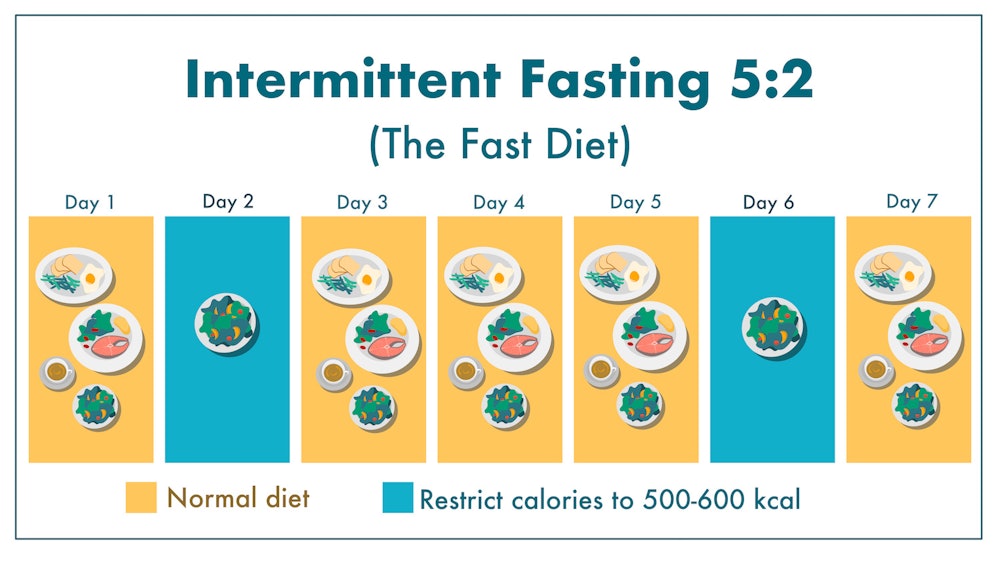
Common Weight Loss Supplements
Though eating a healthy diet and participating in regular physical activity is the best way to lose weight and keep it off, some individuals may choose additional methods of weight loss such as pills and natural supplements.
Most weight loss supplements claim to help you lose weight or make it easier to do so by either increasing your fat-burning capabilities, reducing appetite, or reducing absorption of nutrients such as fat so that your caloric intake is decreased.
Some of the most common supplements on the market today include:
- Caffeine
- Chitosan
- Chromium picolinate
- Conjugated linoleic acid (CLA)
- Garcinia cambogia extract
- Glucomannan
- Guar gum
- Green coffee extract
- Green tea extract
- Hydroxycut
- Meratrim
- Orlistat (Alli)
- Raspberry ketones
Supplements aren’t regulated by the FDA in the same way that food and drugs are and most aren’t backed by science. Because of this, you should consult your healthcare provider or a registered dietician before using supplements.
How to Safely Lose Weight
To lose weight safely and keep it off long-term, the best way to do so is by setting small, realistic goals and focusing on 1-2 pounds per week.
One pound of fat contains 3,500 calories, so to lose weight, you need cut 3,500 calories out of your diet each week.
To do so, you’d start by figuring out your basal metabolic rate (BMR), or the minimum number of calories your body needs to sustain life.
Depending on how physically active you are, your caloric intake will go up to support the energy you’re expending while active. From there, you’d eliminate 500 calories daily to establish your calorie deficit while not interrupting your energy levels or affecting hunger.
Example of a Calorie Deficit
If you exercise 3 to 4 times a week for 30-45 minutes a day and your estimated BMR is 1,927 calories, you'd subtract 500 from that number to find your calorie deficit.
So, to lose weight, you'd want to maintain a daily intake of 1,427 calories.
For food, eating 5-6 portioned-control meals throughout the day is considered the best way to lose weight gradually. This could look like:
- Breakfast: 7 a.m.
- Snack: 9 a.m.
- Lunch: 12 noon
- Snack: 3 p.m.
- Dinner: 6 p.m.
Lastly, it’s recommended that along with a nutritious diet, individuals should aim for at least 200 minutes a week of moderate intensity exercise.
Scams Relating to Weight Loss

Rebel Wilson Does NOT Endorse Diet Pills or Gummies
Sketchy diet pill companies are at it again, using Rebel Wilson's name to falsely endorse their weight loss products.

Selling on Facebook Marketplace? Beware of Fake Venmo Emails
Scammers are sending fake Venmo emails to Facebook Marketplace sellers in an attempt to steal login information and money.

Citibank Text Message Scam: Locked Debit Card Alert Is Fake
If you've received a locked debit card text message from Citibank, it's likely a scam. Don't click on the link and delete the text message.

Real Chase Fraud Text Alert or Scam Message?
If you receive a text message from Chase Bank, don't click on any links or call the phone number listed—it could be a scam designed to steal your information and money.

Amex Fraud Text Alert Scams: Spotting a Fraud
If you receive a text message from American Express, don't click on any links or call the phone number listed—it could be a scam designed to steal your information and money.

Fake Verizon Text Messages: How to Avoid a Scam
Verizon may send you text messages from time to time with account updates or data usage alerts, but beware—most of these aren't really from Verizon but scammers.

Get an Unexpected Delivery Alert? It May be a UPS Text Scam
Scammers are using SMS messages to send fake alerts to customers regarding a package delivery. Here's what to know about this scam.

Venmo Text Scam: Don't Fall For These Fake Messages
If you received a text from Venmo with a link to verify a payment or deposit, or are asked to complete a survey in exchange for money, it may be a scam.

Truist Text Alert: How to Identify a Real Text from a Scam
You may think that that Truist have sent you a text alert about your account. Here's how to check if it is actually a scam.

Wait! That Walmart Giveaway Text May be a Scam!
Fake texts are being sent to consumers claiming a hefty sum is waiting for them on a Walmart gift card, but falling for this scam puts you at risk of identity theft.
Guides Relating to Weight Loss

The Military Diet: How Safe Is It for Weight Loss?
If you're in a hurry to lose weight, the 3-day military diet promises to be the answer to shedding those unwanted pounds fast. But how safe is it really?

Noom Vs. Weight Watchers: How Do They Compare?
Both diets promote balanced eating that avoids restricted meal plans, but which is more useful when it comes to losing weight?
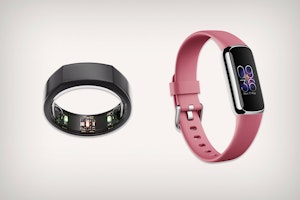
Ōura Ring vs. Fitbit Fitness Trackers: Head to Head
The Ōura Ring is the latest sleep and activity tracker, giving other fitness trackers a run for their money. But how does it compare to the ever-popular FitBit?

12-3-30 Workout: How Effective is This Fitness Trend?
Yet another trend has been born out of a viral TikTok video, but how effective is this fitness workout? We take a closer look at the 12-3-30 workout.

The Truth About Weight Loss Supplements: What Works, What Doesn't
Many who struggle with weight loss turn to supplements or diet pills, but are they safe? Here's what you need to know about supplements for weight loss.
News Relating to Weight Loss

Urgent CDC Warning: Eye Drops Linked to 3 Deaths, Loss of Vision
The CDC is warning eye drops users of a rare bacterial infection from 2 brands of eye drops. The infection is resistant to antibiotics and has resulted in the loss of vision, loss of eyeballs and the death of 3 patients.

Banks May Refund More Zelle Scam Victims in 2023
Zelle scams have reached a serious volume. New reports suggest that banks are looking at new refund protections for customers in 2023.

Optus Data Breach - One of the Worst Cyberattacks in Australia
Hackers have gained access to 9.8 million customer records from Optus in Australia, exposing personal information such as driver licence, medicare and passport details.

Roe vs. Wade Overturned: Abortion Rights in Your State
Find out what the overturning of Roe vs. Wade means for abortion rights in your state.
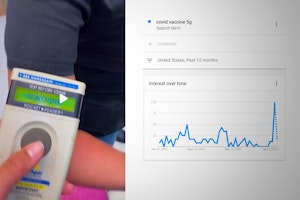
Searches for "COVID Vaccine 5G" Hit All-Time High, But Microchips Definitely Not in Vaccine
The number of people searching for the term "COVID vaccine 5G" on Google has just hit an all-time high, but there's one way to be sure that there are no microchips.

